Best known for her botanical art, ANNA MASON turns her attentions to this wildlife subject to show you a simple way to build a watercolour in clean layers of colour

A colourful character like this tree frog [original photo, pictured right] can prove a daunting prospect when aiming for a realistic result in watercolor.
There are so many colors that have the potential to bleed into each other to create muddy browns, which is why my wet-on-dry method removes stress. I paint each color in turn, letting it dry before applying the next so no two layers bleed together.
I began this painting of a tree frog with pale, watery mixes of watercolor which were a match to the lightest tonal values within each color.
I then layered up within each color area, always waiting for each previous layer to dry first, working on the darkest tones followed by the mid tones.
All the while, I was adding detail and texture with my brushstrokes. Working in this wet-on-dry way means you stay firmly in control of where you place your paint.
For a more detailed demonstration of how to paint this tree frog, a 2.5-hour video is available as part of my online school. www.annamasonart.com/online-school
1. Draw your subject
I like to work from photos, especially when the subject is tiny and might move. Photos also have the benefit of capturing exactly how the light was falling on a subject in a given moment.
To make the painting process as easy as possible, the drawing needed to be a ‘contour’ drawing, mapping out the outside edges of the frog and bamboo but also any clear edges to shapes of color within the frog and bamboo. These included the eyes, the main areas of highlight on the skin, and dots and lines on the legs and between toes.
2. Map out colors
Denne historien er fra Summer 2019-utgaven av Artists & Illustrators.
Start din 7-dagers gratis prøveperiode på Magzter GOLD for å få tilgang til tusenvis av utvalgte premiumhistorier og 9000+ magasiner og aviser.
Allerede abonnent ? Logg på
Denne historien er fra Summer 2019-utgaven av Artists & Illustrators.
Start din 7-dagers gratis prøveperiode på Magzter GOLD for å få tilgang til tusenvis av utvalgte premiumhistorier og 9000+ magasiner og aviser.
Allerede abonnent? Logg på

Still life IN 3 HOURS
Former BP Portrait Award runner-up FELICIA FORTE guides you through a simple, structured approach to painting alla prima that tackles dark, average and light colours in turn
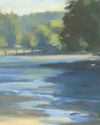
Movement in composition
Through an analysis of three masterworks, landscape painter and noted author MITCHELL ALBALA shows how you can animate landscape composition with movement
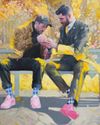
Shane Berkery
The Irish-Japanese artist talks to REBECCA BRADBURY about the innovative concepts and original colour combinations he brings to his figurative oil paintings from his Dublin garden studio
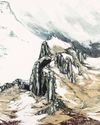
The Working Artist
Something old, something new... Our columnist LAURA BOSWELL has expert advice for balancing fresh ideas with completing half-finished work
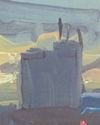
Washes AND GLAZES
Art Academy’s ROB PEPPER introduces an in-depth guide to incorporating various techniques into your next masterpiece. Artwork by STAN MILLER, CHRIS ROBINSON and MICHELE ILLING
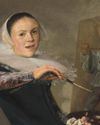
Hands
LAURA SMITH continues her new four-part series, which encourages you to draw elements of old master paintings, and this month’s focus is on capturing hands

Vincent van Gogh
To celebrate The Courtauld’s forthcoming landmark display of the troubled Dutch master’s self-portraits, STEVE PILL looks at the stories behind 10 of the most dramatic works on display
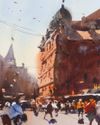
BRING THE drama
Join international watercolour maestro ALVARO CASTAGNET in London’s West End to paint a dramatic street scene
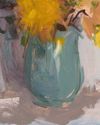
Serena Rowe
The Scottish painter tells STEVE PILL why time is precious, why emotional responses to colour are useful, and how she finds focus every day with the help of her studio wall

Bill Jacklin
Chatting over Zoom as he recovers from appendicitis, the Royal Academician tells STEVE PILL about classic scrapes in New York and his recent experiments with illustration